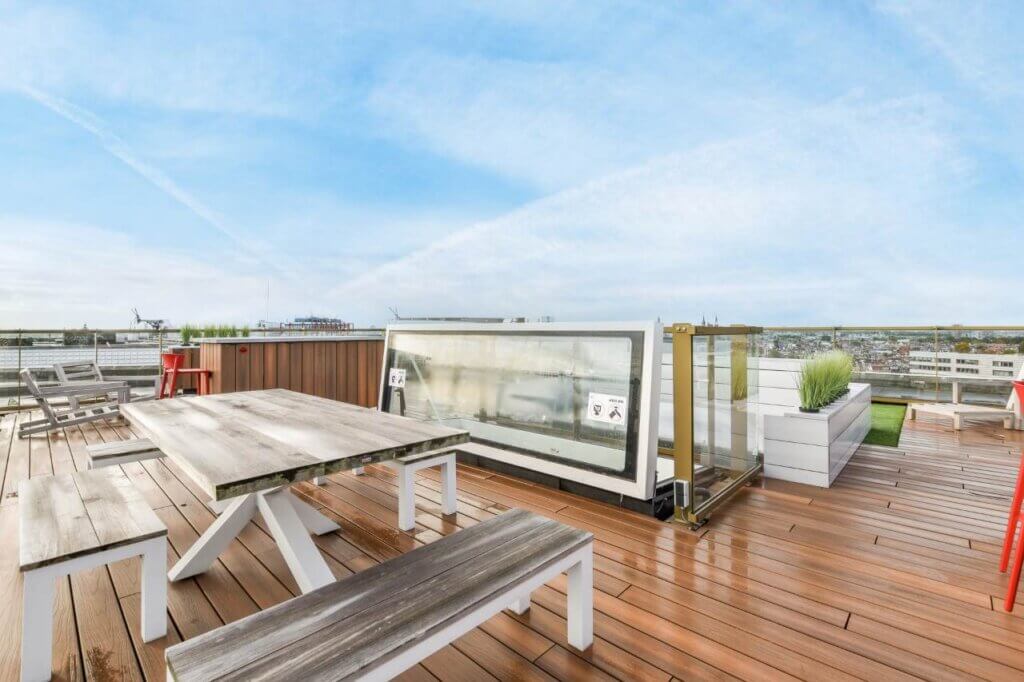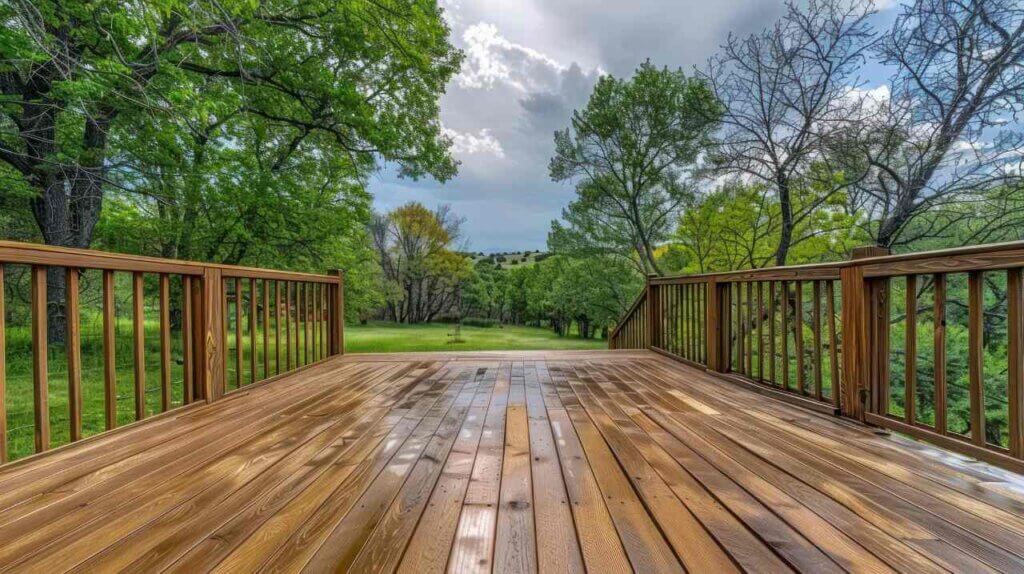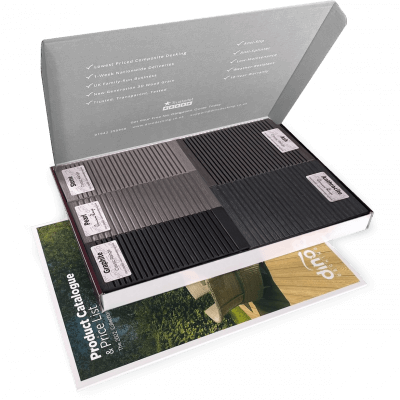How to Protect Composite Decking: Full Guide
Find out how protecting your composite decking can help keep your decking looking its best for years to come. You
Products in Stock
Lowest Prices
Express Delivery
10-Year Warranty
Early July Sale. Up To 15% Off.

Ah, the quintessential British dream: a beautiful deck where you can enjoy a cuppa on a sunny morning or host a barbecue with friends and family. But when it comes to choosing the material for your deck, the options can seem endless. Two popular contenders are cedar and pressure-treated wood. Both offer their own unique advantages, but which one comes out on top?
Whether you’re envisioning a rustic retreat or a modern oasis, understanding the key differences between cedar and pressure-treated decking can help you make an informed decision and create the outdoor space of your dreams. So, let’s dive in and explore the pros, cons, and everything in between.
Cedar is a naturally durable and beautiful softwood that’s been a popular choice for decking for centuries. Its warm tones, distinctive grain patterns, and natural resistance to rot and insects make it a sought-after material for outdoor projects.
Cedar decks, when properly maintained, can last for 15-20 years or even longer. The natural oils in cedar wood provide inherent protection against moisture, decay, and insect infestations. However, regular cleaning and occasional sealing are recommended to prolong its lifespan and maintain its beauty.
Pressure-treated wood is a more budget-friendly option that undergoes a special treatment process to enhance its durability and resistance to the elements. The wood is infused with chemical preservatives that protect it from rot, decay, and insect damage.
Pressure-treated decks can last for 10-15 years, depending on the quality of the wood and the level of maintenance. While they are generally more resistant to rot and insects than untreated wood, they still require regular cleaning and occasional staining or sealing to maintain their appearance and longevity.
Now that we’ve introduced the contenders, let’s compare them head-to-head:
Cedar is renowned for its natural beauty, with warm reddish tones and attractive grain patterns. It tends to weather to a silvery-grey colour over time, adding a touch of rustic charm. Pressure-treated wood, on the other hand, has a more uniform appearance and can be stained or painted to achieve a desired colour.
Both cedar and pressure-treated wood offer good durability and weather resistance. However, cedar has a slight edge due to its natural oils and inherent resistance to rot and insects. Pressure-treated wood relies on chemical preservatives for protection, which can leach out over time, requiring reapplication.
Both types of decking require regular cleaning and occasional sealing or staining to maintain their appearance and longevity. However, cedar generally requires less frequent maintenance due to its natural resistance to moisture and pests.
Pressure-treated wood is typically the more budget-friendly option upfront. Cedar, being a premium material, comes with a higher price tag. However, in the long run, cedar might prove more cost-effective due to its longer lifespan and lower maintenance requirements.
Cedar is a renewable resource, and when sourced from sustainably managed forests, it can be an environmentally friendly choice. Pressure-treated wood, however, involves the use of chemical preservatives, which can have environmental implications. Look for pressure-treated wood that is certified by the Forest Stewardship Council (FSC) to ensure it comes from responsibly managed forests.
Pros:
Cons:

Pros:
Cons:
With all this information in mind, how do you choose the right deck material for your project?
If budget is a primary concern, pressure-treated wood might be the more attractive option upfront. However, factor in long-term maintenance costs and the potential for shorter lifespan.
If you live in a region with harsh weather conditions, cedar’s natural durability and weather resistance might be a worthwhile investment.
If you’re looking for a naturally beautiful and aesthetically pleasing deck, cedar is the clear winner. Its warm tones and distinctive grain patterns can create a truly stunning outdoor space.
If you’re still unsure about which material to choose, you can explore other options, such as composite decking. Our blog post comparing comparison between wood and composite decking can provide further insights and help you make an informed decision.
Choosing between cedar and pressure-treated decking ultimately depends on your individual priorities, budget, and aesthetic preferences. Both materials offer their own unique advantages, but by carefully considering the pros and cons, you can select the perfect material to create the deck of your dreams.If you’re ready to embark on your decking project, browse our wide selection of high-quality decking materials, including our best selling composite decking, today. Plus, our team of experts is also available to answer any questions and help you make the right choice for your outdoor oasis, so don’t hesitate to give us a ring on 01942 355968 or reach out via our website.

Our sample pack contains a sample piece of each colour currently available. Order your free sample pack today to compare the colours and get a true feeling of the Dino Decking range!
Find out how protecting your composite decking can help keep your decking looking its best for years to come. You
It’s quite common to end up with leftover decking after most installation projects. Offcuts and spare boards don’t need to
Business hours
Monday: 09:00 – 17:30
Tuesday: 09:00 – 17:30
Wednesday: 09:00 – 17:30
Thursday: 09:00 – 17:30
Friday: 09:00 – 17:30
Saturday: Closed
Sunday: Closed
Contact us
01942 355968
support@dino.co.uk
Collection Address: Unit 1 Wetheral Close Hindley Ind Estate Wigan Greater Manchester North West WN2 4HS
Pages
Products
Testing
Copyright 2025 Dino Decking Ltd All Rights Reserved.
VAT Number: GB296097848.
Company Number: 10837233.